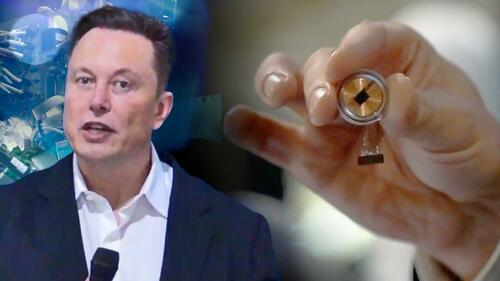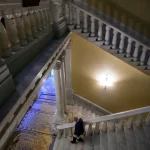
Elon Musk's Neuralink's "show & tell" event was initially scheduled for Halloween day but has been pushed back until the end of November for unknown reasons.
Musk tweeted Sunday, "Neuralink show & tell now on Nov 30."
Neuralink show & tell now on Nov 30
— Elon Musk (@elonmusk) October 23, 2022
The delay led some on Twitter to say, "you are a stupid loser and your bad products are going to fail," while others were excited about possible new developments of Neuralink's transhumanistic technology.
Neuralink, based out of San Francisco, aims to "implant wireless brain-computer interfaces that include thousands of electrodes in the most complex human organ to help cure neurological conditions like Alzheimer's, dementia, and spinal cord injuries and ultimately fuse humankind with artificial intelligence."
In 2020 and 2021, the brain-machine interface startup held demonstrations of the chip implant at work in pigs and monkeys, but the SpaceX and Tesla founder has voiced concerns about the slow rate of progress.
The billionaire said he is "cautiously optimistic" the chip implant can restore full-body functionality for tetraplegics and quadriplegics and has said human testing could be next. Neuralink's efforts have yet to receive FDA approval.
Musk, of course, is neither a doctor nor a scientist... and actual scientists at MIT recently wrote in the MIT Technology Review:
"Elon Musk's livestreamed brain implant event made promises that will be hard to keep."
"None of these advances are close at hand, and some are unlikely to ever come about," the article stated, calling most of the company's medical claims "highly speculative."
It also points out that - just like with solar panels, electric cars, reusable rockets, and busses on skates in tunnels - that Musk isn't the first entrant into the space:
"Researchers began placing probes in the brains of paralyzed people in the late 1990s in order to show that signals could let them move robot arms or computer cursors. And mice with visual implants really can perceive infrared rays."
And let's hope Musk's upcoming Neuralink "show & tell" event isn't "next level cringe-worthy" and a "complete and utter scam" like some said when he revealed the Optimus robot earlier this month.
Elon Musk’s Neuralink’s “show & tell” event was initially scheduled for Halloween day but has been pushed back until the end of November for unknown reasons.
Musk tweeted Sunday, “Neuralink show & tell now on Nov 30.”
Neuralink show & tell now on Nov 30
— Elon Musk (@elonmusk) October 23, 2022
The delay led some on Twitter to say, “you are a stupid loser and your bad products are going to fail,” while others were excited about possible new developments of Neuralink’s transhumanistic technology.
Neuralink, based out of San Francisco, aims to “implant wireless brain-computer interfaces that include thousands of electrodes in the most complex human organ to help cure neurological conditions like Alzheimer’s, dementia, and spinal cord injuries and ultimately fuse humankind with artificial intelligence.”
In 2020 and 2021, the brain-machine interface startup held demonstrations of the chip implant at work in pigs and monkeys, but the SpaceX and Tesla founder has voiced concerns about the slow rate of progress.
The billionaire said he is “cautiously optimistic” the chip implant can restore full-body functionality for tetraplegics and quadriplegics and has said human testing could be next. Neuralink’s efforts have yet to receive FDA approval.
Musk, of course, is neither a doctor nor a scientist… and actual scientists at MIT recently wrote in the MIT Technology Review:
“Elon Musk’s livestreamed brain implant event made promises that will be hard to keep.”
“None of these advances are close at hand, and some are unlikely to ever come about,” the article stated, calling most of the company’s medical claims “highly speculative.”
It also points out that – just like with solar panels, electric cars, reusable rockets, and busses on skates in tunnels – that Musk isn’t the first entrant into the space:
“Researchers began placing probes in the brains of paralyzed people in the late 1990s in order to show that signals could let them move robot arms or computer cursors. And mice with visual implants really can perceive infrared rays.”
And let’s hope Musk’s upcoming Neuralink “show & tell” event isn’t “next level cringe-worthy” and a “complete and utter scam” like some said when he revealed the Optimus robot earlier this month.






